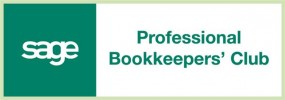My thanks to Business Gateway for the updates on this legalisation.
Relevant to
Any business that provides goods, services and/or access to facilities to the public
Takes effect on
1 October 2010
From 1 October 2010, most of the Equality Act 2010 will come into force. The Act replaces the existing anti-discrimination legislation, such as the Disability Discrimination Act 1995 and the Sex Discrimination Act 1975.
The 2010 Act will remove inconsistencies and introduce greater protections for some groups of people. However, as long as you treat everyone who accesses your goods, facilities or services fairly, you shouldn’t have to make any major changes to the way your business operates.
Protected characteristics
You must not discriminate against people who access your goods, facilities or services on the basis of a ‘protected characteristic’. The relevant characteristics are:
disability
gender reassignment, which covers transsexual people
pregnancy and maternity
race, which includes ethnic or national origins, colour and nationality
religion or belief
sex
sexual orientation
Age will continue not to be covered for the time being.
Apart from cases of pregnancy and maternity, people will be protected even if they do not possess the characteristic themselves, eg where a person is treated unfavourably because they are:
associated or connected with someone else who has a particular protected characteristic
wrongly thought to have a particular protected characteristic
Disability discrimination
Disabled people will be protected from indirect discrimination. This means that it will be unlawful to have a policy which applies to everyone but particularly disadvantages disabled people.
However, you may be able to justify indirect discrimination if you can show it’s a proportionate way of achieving a legitimate aim.
The Act also introduces protection from “discrimination arising from disability”, which occurs when a disabled person is treated unfavourably because of something connected to their disability, eg their use of a guide dog.
Disability harassment
The Act will extend protection against harassment to disabled people in the provision of goods, facilities and services.
Harassment is defined as conduct that has the purpose or effect of:
violating a person’s dignity, or
creating an intimidating, hostile, degrading, humiliating or offensive environment for them
Breastfeeding mothers
From 1 October 2010, the law will make it clear that you must not discriminate against women outside work just because they are breastfeeding, regardless of the age of the child.
Associations (including private clubs)
An association with 25 or more members and whose membership is controlled by rules, eg a golf club, will no longer be able to treat members less favourably because of sex, religion and belief, pregnancy and maternity, and gender reassignment.
Gender reassignment
A transsexual person will be protected even if they are not under medical supervision. In addition, transsexual people will be protected from indirect discrimination.


